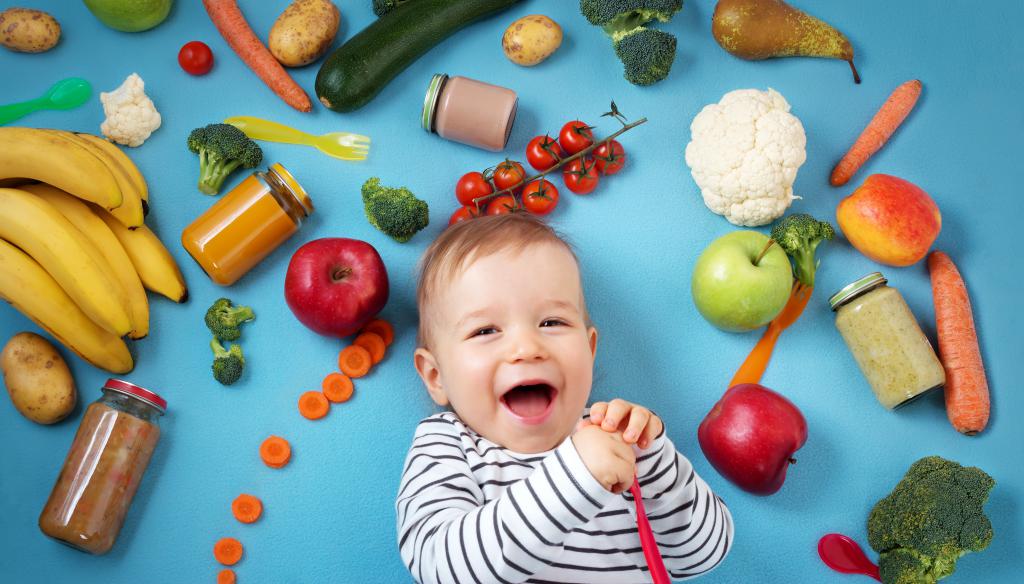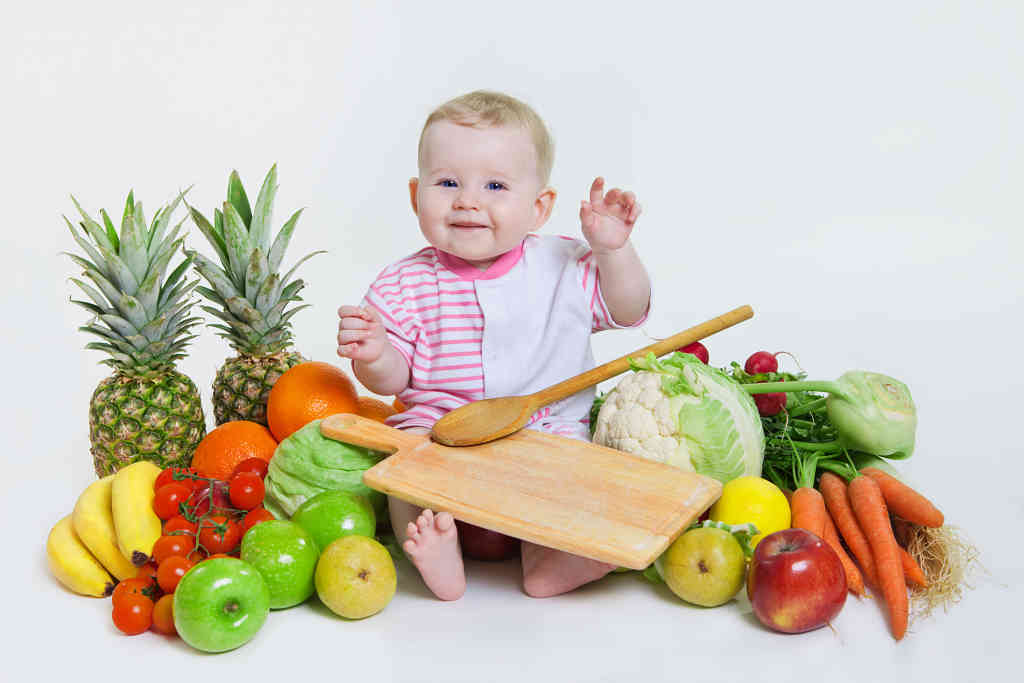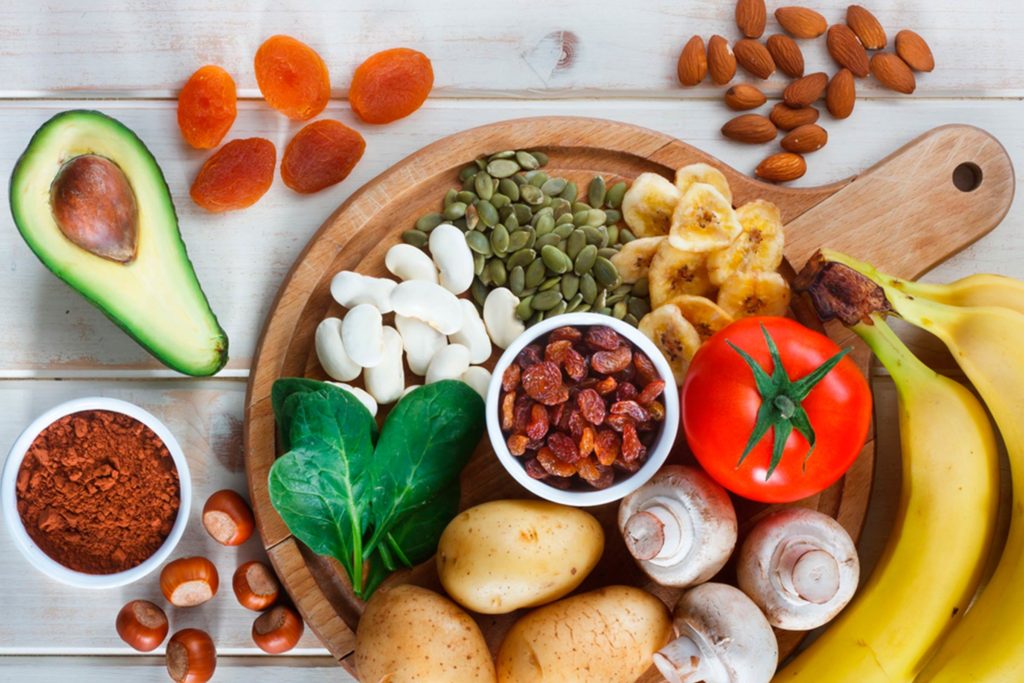
8 Essential Nutritional Requirements For Your Infant
It doesn’t take long to develop the confidence and calmness of an experienced parent. Indeed, it is a divine blessing to become a parent. Your baby will give you the most critical information about how it likes to be treated, talked to, held, and comforted. However, one of the crucial responsibilities of being a parent is feeding your baby properly. This is why learning about the nutritional needs of a rapidly growing infant is essential!

About Infants
Infants are babies who are from 0 to 12 months old. During the first year of life, your baby will grow and develop at an amazing speed. Its weight will double by 5 to 6 months and triple by its first birthday. It is also constantly learning. Major achievements for infants, also called developmental milestones, include rolling over, sitting up, standing and possibly walking. Your heart will melt at the sound of its first “mama” or “papa.”
What are the essential nutrients in a baby’s diet?
Breastfeeding is essential for your baby’s proper growth, bonding, and immunity! Your baby will get all the nutrients it needs for the first six months from breast milk or formula. Although these will remain the primary source of nutrients through the first 12 months, supplementary nutrients will be needed eventually. A gradual transition to solid foods will meet this demand.
« Breastfeeding is a mother’s gift to herself, her baby and the earth… »

Here are the nutrients that your growing baby needs to thrive :
Protein.
Protein is needed for your baby to grow and develop healthily. Breast milk or formula is the main source of protein. The protein-rich Solid foods to add in your baby’s diet are eggs, meat, chicken, fish, and grains.
Calcium
Calcium is essential for developing strong bones and teeth in your baby. The major source of calcium for infants remains breast milk or formula. Baby-friendly foods rich in calcium, such as whole milk cheese and whole milk yogurt are wonderful nutritious additions.

Whole grains and complex carbohydrates
Carbohydrates are the best energy sources and are also necessary for your baby to grow and develop properly. Whole grain bread, whole-grain cereal, whole grain pasta, brown rice, lentils, beans, and peas are good options for your baby’s diet as they contain essential vitamins, minerals, and protein.
Vitamins A, B, C, and E
These four vitamins promote healthy brain and nerve development and proper functioning and development of the eyes, skin, and immune system. Carrots and sweet potatoes are rich in vitamin A. Green vegetables, bananas and beans are packed with vitamin B. Tomatoes, strawberries, and oranges are full of vitamin C. Cereals, and grains contain vitamin E.
Fats and Cholesterol
These nutrients are needed for the absorption of fat-soluble vitamins. You will get most of the fats and cholesterol needed in the diet from Breast milk and formula. Whole milk or full-fat dairy products are good sources of fats. Moreover, avocado or olive oil is also fruitful in this case.
Iron
Iron is essential for proper growth and development. Additional iron sources to the diet are meat, egg yolks, wheat germ, whole-grain bread and cereals, cooked dried peas, and green leafy vegetables.
Omega 3 fatty acids
Omega 3 fatty acids are important for your infant’s optimal brain development, growth and vision. These fabulous fatty acids are served up naturally in breast milk. Additional foods high in omega-3 fatty acids are fish, tofu, flaxseed, canola oil, and eggs.

Fluids
Once your baby is started on solid foods after 6 months, sips of water can be allowed with meals. Juicy fruits and vegetables can also be encouraged. Fluids are essential to prevent dehydration and also for proper food absorption.
Warning!
-
Preparations according to age should be offered.
-
Only one new food at a time should be introduced.
-
Signs of allergic reactions should be closely monitored (Common allergens are nuts, dairy, and wheat.).

Remember that there is no need to worry about serving sizes or numbers of servings. Instead, you must provide a variety of nutritious foods and a fun, relaxed mealtime atmosphere. Then sit back and watch the healthy eating happen… and a future of healthy eating habits take shape.
Please do not forget to share your comments below!
You May Also Like

What’s the Best Way to Discipline My Child?
2022-05-17
Nurturing Young Minds: Exploring the Contrasts Between Early Learning Centres in Australia and the USA
2023-12-07



One Comment
Twicsy
I’d like to find out more? I’d like to find out more details.